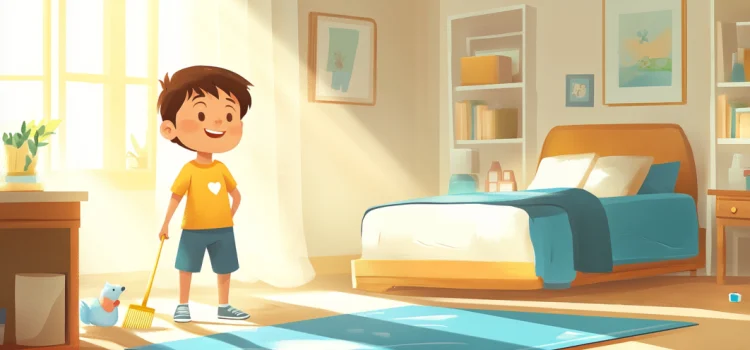
Why is teaching responsibility to your children so important? How early should you start? What are the benefits?
In her book 13 Things Mentally Strong Parents Don’t Do, psychotherapist and mental strength trainer Amy Morin stresses the importance of instilling a sense of responsibility in your children. Responsible children grow up to be more self-reliant, empathetic, and more.
Here’s how to set your child up for success.
Mentally Strong Parents Don’t Let Their Children Avoid Responsibility
Morin says that another key part of setting reasonable expectations is to teach responsibility to your child from a young age, both in the sense of handling responsibilities and taking responsibility for their actions.
First, it may be tempting to let your child have as much free time as possible rather than burdening them with chores on top of their schoolwork. However, Morin says mentally strong parents understand that having such responsibilities from a young age sets children up for success later in life; children who grow up doing chores tend to be harder workers, more self-reliant, and more empathetic than those who are allowed to spend their childhoods doing whatever they want.
Therefore, the author recommends assigning your child chores that are appropriate for their age and holding them accountable for those tasks (we’ll discuss appropriate consequences in the next section).
(Shortform note: Chores and responsibilities are beneficial to a child’s development, but it’s crucial not to overdo it because playtime is also essential for growth and learning. Playing helps children to develop physical skills like coordination and balance, while also honing their social and emotional abilities such as communication, empathy, and creativity. Furthermore, simple toys and everyday objects can spark a child’s imagination and love of learning, encouraging them to explore, experiment, and discover the world around them in a fun and engaging way. Finally, when you engage in play with your child, it strengthens the emotional bond between you. That bond helps your child to feel secure and loved, which in turn supports their mental and emotional health.)
Second, Morin says mentally strong parents expect their children to solve their own problems (within reason), rather than letting them get away with blaming others and thereby avoiding responsibility. This will sometimes lead to situations in which your child has to take responsibility for solving problems that weren’t their fault; unfortunately, life isn’t always fair, and your child must be prepared for that.
Also note that taking responsibility includes taking responsibility for interpersonal problems. This is important because children need to practice solving conflicts with each other on their own, instead of always looking to adults for help—doing so will allow them to develop problem-solving skills that they’ll need as they grow up, when there won’t always be an authority figure nearby to step in for them.
| Responsibility Isn’t Blame It will help your child take responsibility if they understand that solving a problem doesn’t imply that they caused the problem, and doesn’t make it any more likely that they’ll be blamed or punished for it. In The Subtle Art of Not Giving a F*ck, Mark Manson says that taking responsibility for something is not the same thing as taking blame for it. He explains that people often end up in difficult situations that aren’t their own fault; to give a few examples, someone might be the victim of a crime, could have grown up in a disadvantaged community, or may have been born with a disability. However, people still need to take responsibility by making the best decisions they can in whatever situations life hands them. In fact, Manson argues that assigning blame at all is a waste of time and energy—it serves no purpose except to make someone else feel bad. Therefore, regardless of who (if anyone) is at fault for whatever problem your child is experiencing, what matters is encouraging them to take responsibility by deciding what they’re going to do about it. |






